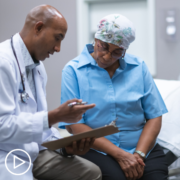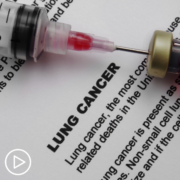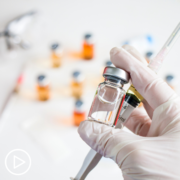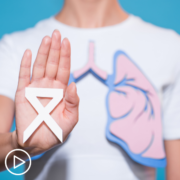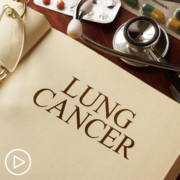Enhancing Lung Cancer Care for Black and Latinx Patients | Tackling Challenges, Implementing Solutions
Enhancing Lung Cancer Care for Black and Latinx Patients | Tackling Challenges, Implementing Solutions from Patient Empowerment Network on Vimeo.
What are challenges and solutions to quality care for Black and Latinx non-small cell lung cancer (NSCLC) patients? Expert Dr. Samuel Cykert from UNC School of Medicine discusses challenges, solutions, and proactive patient advice toward quality care.
[ACT]IVATION TIP
“…for things like biomarker testing and advanced treatments, you need to go to the closest high volume center.”
Download Resource Guide | Descargar guía de recursos
See More from [ACT]IVATED Non-Small Cell Lung Cancer
Related Resources:
Transcript:
Lisa Hatfield:
Dr. Cykert, what specific challenges do Black and Latinx patients with lung cancer often encounter in advocating for themselves within the healthcare system, and how can they navigate these challenges effectively to ensure they receive equitable and quality care?
Dr. Samuel Cykert:
Yes, and in our past research we discovered that there are certain implicit biases and communication biases that affect patients of color, and because of that, I think it’s really important to approach the clinical encounter with cancer care decision-makers with enthusiasm, that meaning making a direct statement that I’m very enthusiastic about getting care for my lung cancer, I’m very enthusiastic about biomarker testing, tailored therapy, surgery and research protocols. So please consider me for all those results, and I know what I said was just a mouthful.
And even if you can remember to just start with, I’m very enthusiastic about getting treatment, and biomarker testing would be good and I’m positive about it, how do you feel about it? Engage the clinician in the conversation so they really know that you’re part of the team and they’re part of the team, and you’re ready to move toward excellent treatment and you’re willing to consider even research stuff.
Share Your Feedback
Create your own user feedback survey

